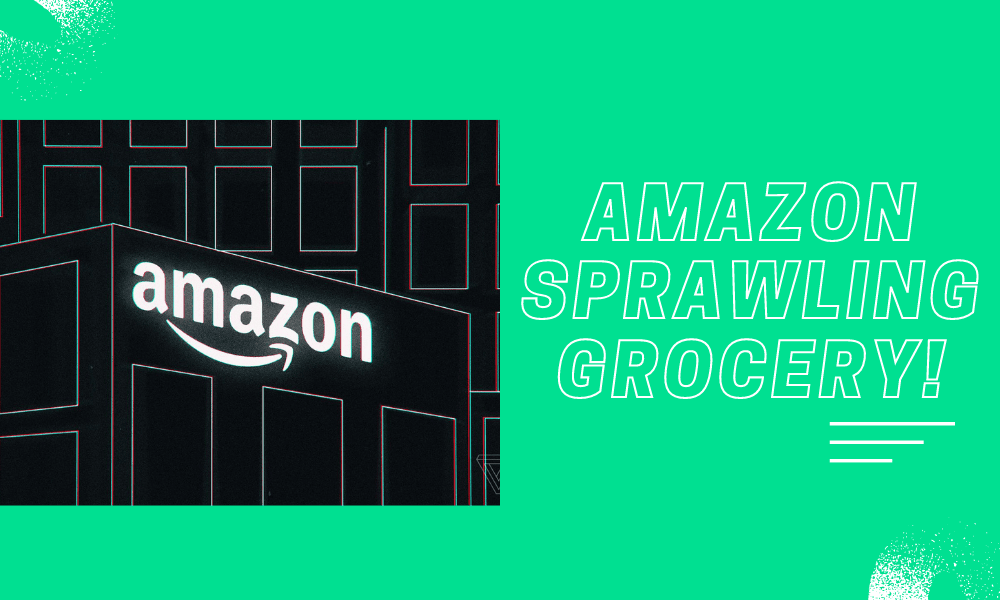Amazon has spent almost three decades perfecting the art of bringing everything imaginable to yo...

Amazon has spent almost three decades perfecting the art of bringing everything imaginable to your doorstep in the shortest amount of time, at the lowest possible price.

Amazon has spent almost three decades perfecting the art of bringing everything imaginable to your doorstep in the shortest amount of time, at the lowest possible price.
By almost any measure, it’s been one of the greatest corporate successes in history.
But despite Amazon’s unquestioned dominance in e-commerce, one giant market has proven particularly vexing: groceries.
Amazon has introduced a dizzying array of services — Prime Now, Fresh, Go, and others — in its effort to become a giant in the $750 billion U.S. grocery market.
In 2017, it spent $13.7 billion to acquire Whole Foods, a price tag more than 10 times higher than Amazon had paid in any prior deal.
Still, it’s just a niche player in the industry. As of mid-December, Amazon.com and Whole Foods accounted for a combined 2.4% of the grocery market over the past 12 months.
While Walmart controlled 18%, according to the research firm Numerator. Amazon’s delivery services have struggled to stand out in a crowded field.
While the Go automated convenience stores have been deprioritized, according to people familiar with the company’s strategy.
On founder Jeff Bezos’ watch, shareholders expressed little concern about this corner of the Amazon empire.
European Stock Futures Lower As Ukraine Situation Remains Tense
US Senate Banking Head Shouts Loud Over Super Bowl Crypto Ads
What’s Shaping The Future Of The Institutional Crypto Market?
The company’s stock price soared almost 400% in his last five years at the helm, boosted by e-commerce growth and booming cloud business.
The story has changed since July when Bezos was succeeded as CEO by longtime cloud chief Andy Jassy.
The stock has dropped by about 13% in that time and was the worst performer in the Big Tech group last year.
Amazon just reported its slowest growth rate for any quarter since 2001. That may give investors a reason to start looking for things they don’t like.
One area of scrutiny could be Amazon’s physical stores unit, which includes Whole Foods and Fresh stores.
It saw lower sales in 2021 than in 2018, even as its footprint of leases expanded by 17% over that stretch.
“Amazon’s all about the cloud, e-commerce, and entertainment,” said Jake Dollarhide, CEO of Longbow Asset Management.
Which has counted Amazon as a “core holding” since 2011. “It’s almost like the grocery business is an expensive hobby.”
Competition Is Everywhere
Entrenched players such as Walmart, Target, Kroger, and Albertsons are getting savvier with digital offerings, thanks to the pandemic jolt.
Meanwhile, Instacart, Uber, DoorDash, and GoPuff are throwing money at speedy delivery, Amazon’s sweet spot.
With Jassy now plotting the road ahead for Amazon and its disjointed portfolio of high-cost grocery assets.
 Revealed In 2022 Revealed In 2022 What indicators do professional traders use? |
CNBC talked with insiders and former employees about how the company got to this point and where it goes from here.
Most of the people who agreed to be interviewed did so on the condition that they not be named because they weren’t authorized to speak about their experiences or they feared retribution from the company.
They portrayed an environment of intense internal competition for resources and said culture clashes ensued when groups came together.
Part of that is intentional, as Bezos fostered a workplace of competing ideas. It’s also created chaos and a lack of clear direction.
Amazon declined to provide commentary on the record for this story or make any executives available for interviews. CNBC!